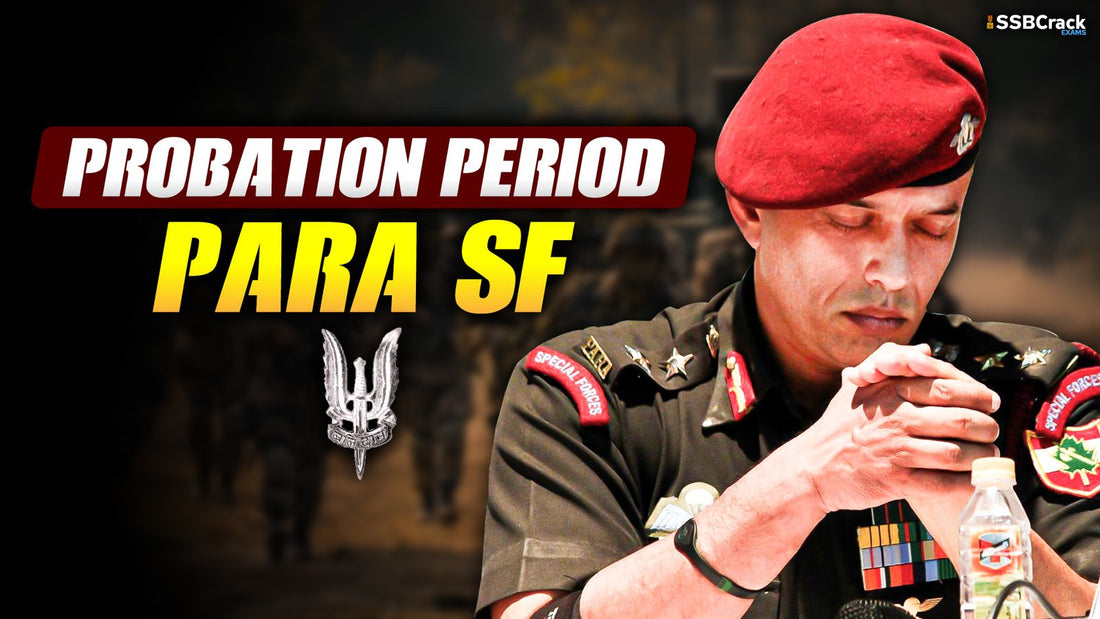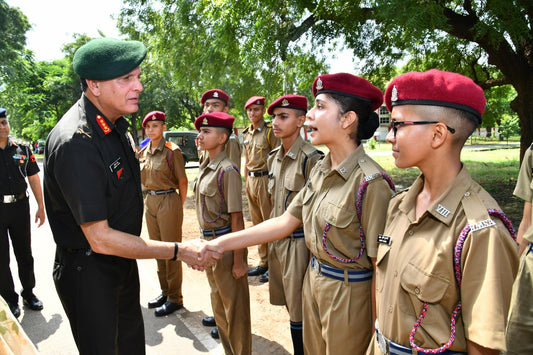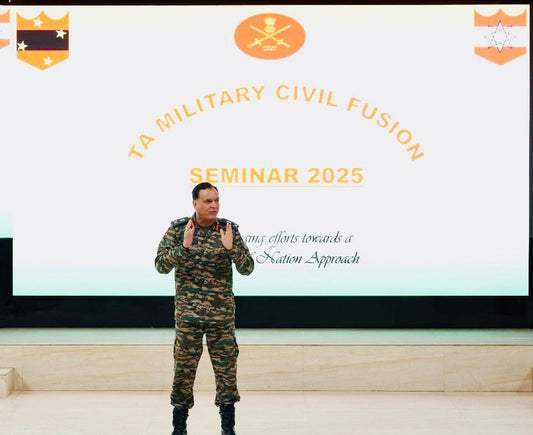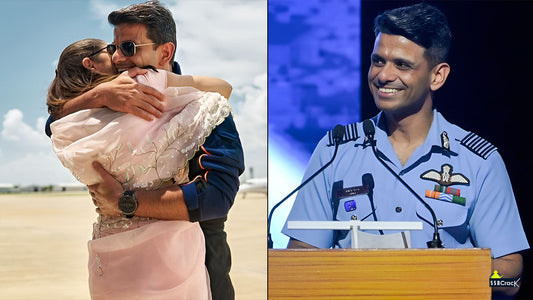Passing Para SF Probation: Understanding India's Toughest Military Selection Process

The Para Special Forces (SF) probation is recognized globally as one of the toughest military selection processes, pushing aspirants to their physical, mental, and tactical limits. Candidates in the Indian Army undergo an exhaustive training regimen aimed at preparing elite warriors for the harshest conditions. Often referred to as India's most challenging military test, this probation has a success rate of less than 10% in many groups.
To successfully complete Para SF probation, candidates must demonstrate unwavering determination, facing months of rigorous physical and psychological challenges that mimic real combat situations. This article, based on current training insights, provides strategies for success, preparation advice, common mistakes, and the evolving nature of special forces training. Whether a seasoned soldier or a new recruit, understanding the nuances of this process is crucial for success.
The Para Special Forces of the Indian Army are the epitome of military prowess, with their probation training seen as a critical hurdle that only the strongest overcome. Known for their secret operations and high-stakes missions, this elite unit requires candidates to exceed standard limits. Data from the past five years shows that while thousands have attempted the probation, less than 500 have earned the maroon beret and Balidan Badge. This article examines the comprehensive aspects of passing this formidable test, covering economic benefits, challenges, and future trends to provide a detailed guide for aspirants.
Joining the Para SF not only satisfies a patriotic duty but also brings significant economic benefits that extend beyond a military career. Successful candidates receive higher pay, special allowances, and post-service opportunities that ensure financial security. For instance, Para SF commandos earn risk and hardship allowances that can raise their monthly earnings by up to 50% compared to standard infantry soldiers. The skills acquired during probation, such as leadership, survival skills, and tactical expertise, are highly sought after in private security, consulting, and corporate sectors, often leading to salaries exceeding INR 1 lakh per month after retirement.
The economic impact is also felt by families and communities. Para SF veterans typically secure pensions that are 20-30% higher due to their specialized service, offering long-term financial assurance. Recent trends show many Para SF alumni have become entrepreneurs, starting defense training academies or adventure tourism businesses that generate significant revenue. This section explores how mastering the probation can lead to these economic benefits, supported by data on career advancement and income potential.
| Rank | Base Salary (INR/month) | Special Allowances (INR/month) | Total Earnings (INR/month) |
|---|---|---|---|
| Sepoy (Entry Level) | 25,000 | 10,000 | 35,000 |
| Naik | 35,000 | 15,000 | 50,000 |
| Havildar | 40,000 | 20,000 | 60,000 |
| Subedar | 50,000 | 25,000 | 75,000 |
The table above shows the salary structure for Para SF personnel, highlighting how economic benefits increase with rank and experience. These figures are based on current Indian Army pay scales, adjusted for special forces incentives.
| Post-Service Career Path | Average Annual Income (INR) | Employment Rate (%) |
|---|---|---|
| Private Security Consultant | 12,00,000 | 65 |
| Defense Trainer | 10,00,000 | 50 |
| Corporate Leadership Role | 15,00,000 | 40 |
| Entrepreneur (e.g., Adventure Firm) | 20,00,000+ | 30 |
This second table highlights post-retirement economic opportunities, derived from recent surveys of Para SF veterans, emphasizing the high employability and income potential from skills honed during probation.
The Para SF probation comes with a host of physical, mental, and environmental challenges that test every aspect of a candidate's endurance. The initial 90-day intensive phase involves sleep deprivation, extreme physical tasks, and simulated combat scenarios, with dropout rates reaching 80% in the early weeks. Candidates endure forced marches of up to 40 km carrying 30 kg loads, high-altitude jumps, and underwater combat drills, all requiring tactical precision under stress. Recent training data indicates common injuries such as stress fractures and hypothermia, highlighting the importance of thorough preparation.
Mental challenges are equally formidable, with psychological tests and isolation exercises designed to test mental strength. Candidates face scenarios demanding quick decision-making in hostile environments, often without food or rest for extended periods. Overcoming these obstacles requires not just physical strength but mental strategies, such as building mental resilience through visualization and peer support. This section analyzes these challenges, offering insights into common failure points and effective navigation strategies.
| Challenge Type | Duration | Drop-Out Rate (%) | Common Injuries |
|---|---|---|---|
| Forced March | 24-48 hours | 40 | Blisters, Dehydration |
| High-Altitude Jump | Variable | 25 | Altitude Sickness |
| Underwater Drill | 1-2 hours | 30 | Hypothermia |
| Sleep Deprivation | 72 hours | 50 | Mental Fatigue |
The table highlights key challenges in Para SF probation, with data reflecting average statistics from recent training cycles, emphasizing the high attrition associated with each challenge.
| Preparation Strategy | Success Rate Improvement (%) | Key Focus Areas |
|---|---|---|
| Progressive Load Training | 35 | Building Stamina Gradually |
| Mental Conditioning | 40 | Meditation and Visualization |
| Nutrition Optimization | 25 | High-Protein Diets |
| Peer Simulation Drills | 30 | Team-Based Practice |
This table outlines strategies for overcoming challenges, based on successful candidates' feedback, demonstrating quantifiable improvements in pass rates.
With evolving military tactics, Para SF probation is integrating advanced technologies and modern warfare strategies to prepare commandos for future conflicts. Recent changes include drone-assisted reconnaissance training and cyber warfare simulations, reflecting a shift towards hybrid threats. Data from the past two years shows a 15% increase in tech-focused modules, such as AI-driven target identification, to boost operational efficiency. Candidates must stay informed of these trends, blending traditional training with digital skills.
Future trends also highlight holistic wellness, with probation programs increasingly incorporating recovery techniques such as biofeedback and nutrition technology to reduce injury rates. Emphasis on environmental sustainability is growing, with training focusing on low-impact operations in sensitive ecosystems. This section explores these emerging patterns, offering forward-looking advice on aligning preparation with anticipated changes in special forces training.
| Trend | Adoption Year | Impact on Training (% Efficiency Gain) |
|---|---|---|
| Drone Integration | 2023 | 20 |
| AI Simulations | 2024 | 25 |
| Biofeedback Tools | 2025 | 15 |
| Cyber Warfare Modules | 2026 (Projected) | 30 |
The table projects future trends in Para SF training, using data extrapolated from recent military reports, illustrating efficiency gains from technological advancements.
| Preparation Tip for Trends | Required Skills | Resources Needed |
|---|---|---|
| Tech Familiarization | Basic Coding, Drone Operation | Online Courses, Simulators |
| Wellness Training | Yoga, Nutrition Planning | Apps, Expert Guidance |
| Global Awareness | Language Skills, Cultural Knowledge | Books, Exchange Programs |
| Sustainability Focus | Eco-Tactics | Field Manuals |
This table offers actionable tips for adapting to future trends, informed by evolving military doctrines.
Completing the Para SF probation successfully requires a combination of physical strength, mental resilience, and strategic foresight, making it a transformative challenge for those who accomplish it. By understanding the economic advantages, navigating significant challenges, and adapting to future trends, aspirants can enhance their chances of success. Ultimately, this rigorous military test in India not only produces elite commandos but also instills lifelong skills that extend beyond the battlefield, contributing to both personal and national development.



















